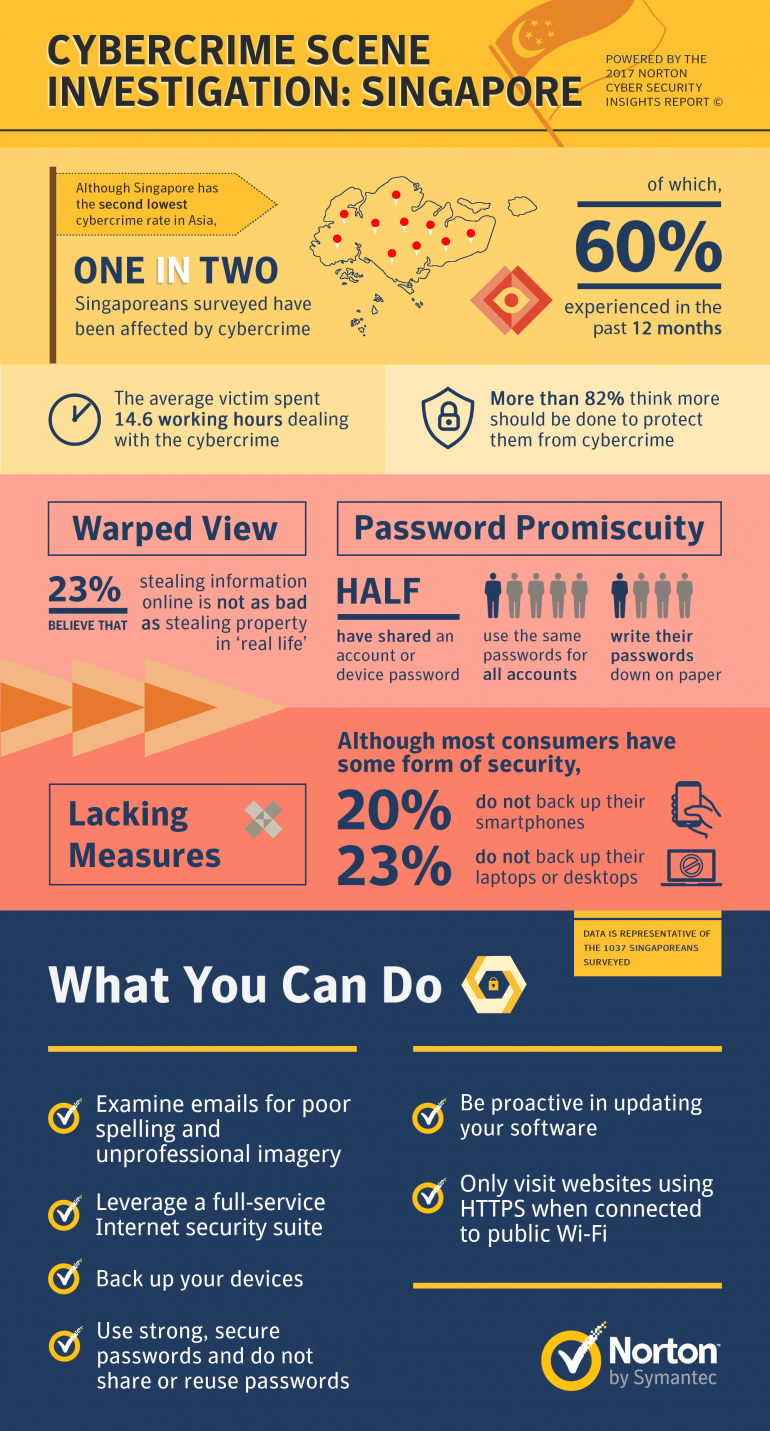Over the past two days, there have been reports that Singaporeans are receiving fake SMSs asking for credit card information in the wake of the SingHealth breach and fraudulent charges on their iTunes accounts.
These incidents show that Singaporeans are more vulnerable than ever, especially as these won’t be the last of such incidents. How can Singaporeans protect themselves and what should they do if they have been affected?
Singaporeans’ are increasingly becoming victims of cyber crime
The 2017 Norton Cyber Security Insights Report reveals that this is not at all surprising – in 2017:
- One in two Singaporeans surveyed were victims of cyber crime.
- On average, a Singaporean consumer spent 14.6 hours dealing with the aftermath of a cyber event
What Singaporeans think about cyber crime
- 82 percent believe law enforcement and internet companies should ramp up cyber security measures.
- More than half (56 percent) of surveyed consumers believe that it is more important than ever to know how to protect their privacy; conversely, 32 percent don’t think it’s worth worrying too much about online threats that they read or hear about
Is this the real life, or is it just cyber crime
- The study also revealed that 81% of Singaporean consumers surveyed believe cyber crime should be treated as a criminal act.
- 37% think it’s a fact of life to be accepted.
The state of consumers’ trust
- Singaporeans generally continue to trust the traditional institutions that manage their data and personal information.
- Consumers gained or maintained trust in organisations such as banks and financial institutions (20%).
What can Singaporeans do?
To protect themselves against targeted attacks, consumers should:
- Use strong passwords. This cannot be emphasized enough. Use strong and unique passwords for your accounts and devices, and update them on a regular basis—ideally every three months. Never use the same password for multiple accounts.
- Don’t click links in unsolicited email or social media messages, particularly from unknown sources. Scammers take advantage of the fact people are more likely to click on links from their friends.
- Install security software on all your connected devices – from mobile phones to PCs – to ensure they are not being used to gain control of your interconnected devices.
- Change any security questions that may be used/linked to the data that’s leaked
- Enable multi-factor authentication to especially web-based email access to strongly authenticate the user logging into the email service






